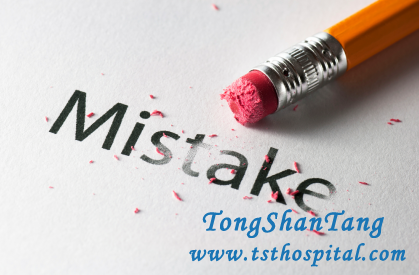 In the clinical work of nephrology, we often treat patients who have not relieved urinary protein for a long time. They are not without treatment, but the urinary protein can not be reduced after medication.
In the clinical work of nephrology, we often treat patients who have not relieved urinary protein for a long time. They are not without treatment, but the urinary protein can not be reduced after medication.
It is true that some patients have difficulty in reducing urinary protein. But it is mostly because that the treatment is not standardized. Here we list 5 mistakes you may make in treating kidney disease.
1. Misdiagnosis
Focal segmental glomerulosclerosis (FSGS) and amyloid nephropathy are the most commonly misdiagnosed diseases. Pathologically, they are somewhat similar to those of minimal change disease, so they are misdiagnosed as minimal change disease, and then subsequent treatment is incorrect.
2. Drug withdrawal occurs when steroid is ineffective after 8 weeks
For most patients, after using steroids for 4 weeks, proteinuria will be reduced significantly, but some kidney diseases need immunosuppressive agents (steroids can be combined). And not all patients who are treated with steroids have effect within four or eight weeks.
For example, membranous nephropathy, it may take 12 weeks for steroids plus immunosuppressive agent to be effective, or FSGS, it may take 16 weeks (about 4 months) for steroid to be effective.
3. Minimal Change Disease or Membranous Nephropathy is only treated with steroids.
Most children with Nephrotic Syndrome are minimal change disease. The preferred drug for minimal change disease is steroid, but not steroid only. Some patients with minimal change nephropathy are prone to frequent recurrence.
If the proteinuria of minimal change disease recurs repeatedly, cyclophosphamide can be added for a period of time; patients who are not suitable for cyclophosphamide can use cyclosporine (cyclosporine starts at a small dose, gradually increases, and decreases slowly after taking effect).
Membranous nephropathy treated with steroid alone is a big taboo. Clinical studies have fully proved that steroid alone is ineffective for membranous nephropathy. If steroids are not suitable for patients with membranous nephropathy, it is possible to use immunosuppressive agents alone, but not steroids alone. Occasionally, there are still patients with membranous nephropathy who only use steroids, which should be taken as a warning.
If patients with membranous nephropathy are resistant to the "hormone + immunosuppressive" regimen, they can be treated with rituximab, which can further improve the remission rate of urinary protein by 60%-65%.
4. Low immunity without paying attention to immunity
Patients with high urinary protein must pay attention to plasma albumin.
If urine protein is lost too much, the protein in blood will decrease and hypoproteinemia will occur (plasma albumin is less than 30g/L). If the plasma albumin is too low, the immunity of the human body will be reduced, and infection will often occur, leading to the protracted illness. Therefore, patients with high urinary protein should pay attention to the level of plasma albumin and infuse human serum albumin when necessary.
There are also immune tests, peripheral blood lymphocyte count needs to be more than 600/mm3, CD4 cell count needs to be more than 200/mm3. These two indicators are too low and easy to infection. Thymosin or/and immunoglobulin can improve immunity.
Influenza vaccines and pneumococcal vaccines are recommended to prevent colds in patients who are prone to common colds. Kidney patients without contraindications are recommended to be injected.
5. Other issues
For those allergic to pollen, dust mites, pets, cats and dogs, they need to stay away from these allergens, such as Henoch-Schonlein Purpura Nephritis, minimal change nephropathy and other kidney diseases, which are easy to relapse due to exposure to allergens.
If the tonsils of IgA Nephropathy patients are frequently infected, tonsillectomy may be considered.
Human serum albumin infusion can improve immunity, but it can not be excessive infusion, which may lead to severe vacuolar degeneration of renal tubules (large intestine-like changes) so that steroids are ineffective. In such a case, we should wait for several months. After the repair of tubular lesions, you can use drugs.
Not all urinary proteins can be alleviated eventually. After western medicine combined with Traditional Chinese Medicine treatment based on syndrome differentiation and methods that should be used are ineffective, we can use ACEI/ARB drugs, diuretics, lipid-lowering and other means to minimize urinary proteins.
Have you made the above 5 mistakes in treating kidney disease before? For more information on kidney disease treatment, please leave a message below or contact online doctor.
- Email:tsthospital@hotmail.com
- WhatsApp/WeChat/Phone Number:+86 15512139310
- Kidney Treatment Group:
- https://chat.whatsapp.com/2ZCOvebPJdr9QGkyfiqxDz
- Tag: CKD ckd treatment
- previous:The Most 2 Important Medicines for Kidney Disease
- next:none

